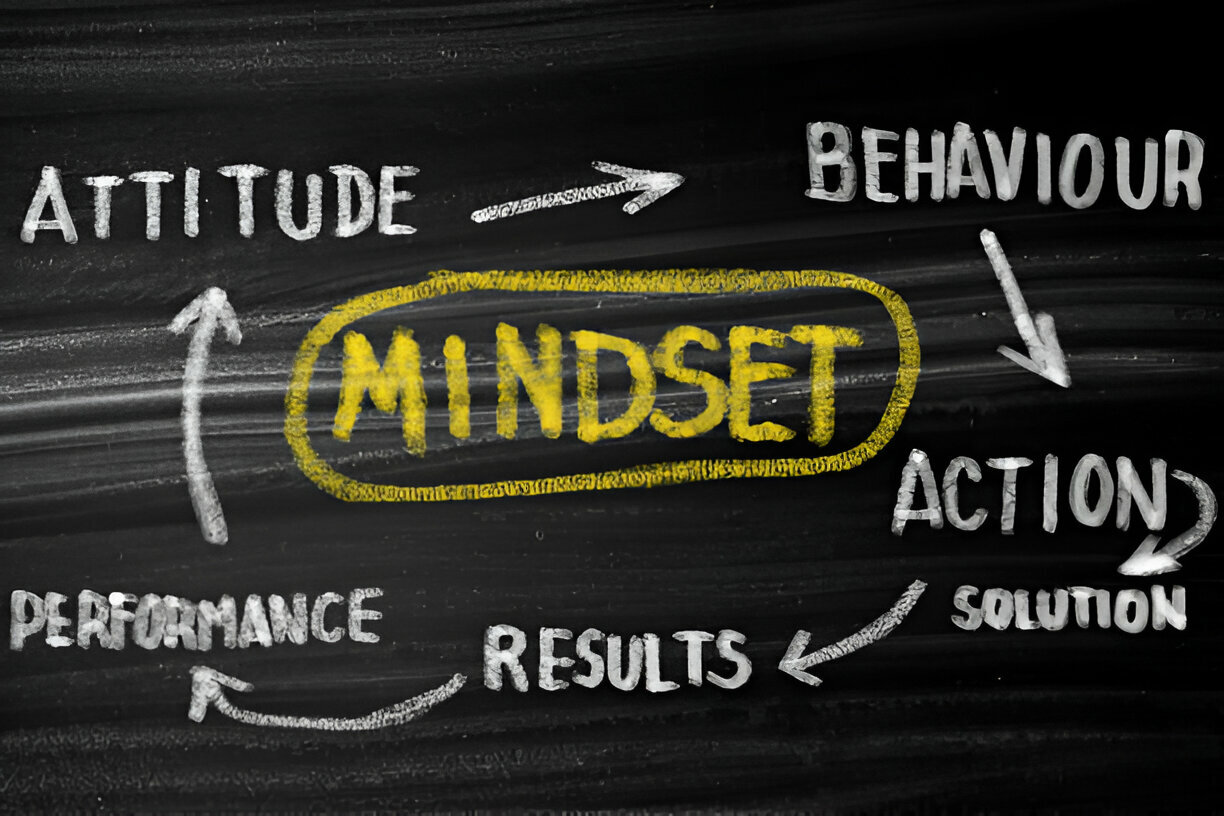Introduction
A cheerful outlook works like a flashlight, showing the way to days filled with happiness, purpose, and bounce-back power. This sets the stage for hope, guts, or steady emotions inside. Once you see just how strong your thinking really is, chances start appearing – suddenly challenges become tools that help you rise.
Start your day sharp, focused, maybe even a little eager – ready for calm stretches or rough patches without flipping out. This is what growing optimism feels like. Think of it as seeing mistakes as feedback, obstacles as short-term hiccups, tough spots as chances to grow tougher. Being upbeat isn’t about ignoring pain – it’s about walking into fire steady-minded, not reckless.
Maya Angelou put it this way: “I can be changed by what happens to me. Yet I won’t let it shrink who I am.” That’s the heart of staying mentally strong – going with shifts while keeping your sense intact. Sure, life hands us things we didn’t ask for; still, we pick how to see those moments, also how they shape our path ahead.
This blog helps people grow a stronger outlook while bringing good vibes into everyday moments. If boosting your mood’s the goal, handling pressure easier, or feeling more emotionally balanced – starting with a brighter mindset makes sense. Using real-life tips, down-to-earth stories, but also handy tools, it walks you through making life feel lighter and more satisfying.
Looking at how your mind works, checking your usual thoughts, while trying methods that boost positivity means you’re starting a strong path to feeling happier and tougher. Come along as we check out how changing your thinking can improve your mental state, emotions, plus daily living.
Section 1: Understanding Mindset
To really build a good outlook, you’ve got to know what “outlook” even means. This way of thinking includes your core beliefs, feelings, and the meaning you assign things – shaping how you see yourself, people around you, or life in general. How you choose paths, face challenges, or react during daily moments gets guided by this inner lens. Honestly, much of where your life heads comes down to this filter.
Some folks believe skills stay the same, while others think they can improve over time.
-
A fixed mindset means thinking your talents and brainpower are set in stone – no shifting them. Folks stuck here dodge tough tasks, panic over slip-ups, yet view failures as proof they’re just not good enough.
-
A growth mindset thrives on the idea that you can grow skills with effort. These people jump into hard stuff, gain insight from blunders, treating rough patches like stepping stones to get better.
The good things about growing an upbeat attitude really add up. Not just smiling – more like picking thoughts on purpose that boost how you feel. This kind of thinking steadies emotions, keeps moods in check, also lifts joy. Focus on what’s working instead of stuck on problems, then gratitude grows, you stay centered, plus hope sticks around.
A cheerful attitude helps lower stress while boosting emotional strength. When folks face tough times with optimism, they stay grounded, manage thinking patterns, or use smart ways to cope. It won’t remove problems however – it builds confidence to handle them without sinking under pressure.
Once you get how your thinking works, spot the difference between stuck and flexible attitudes, yet see why staying upbeat helps – you start real change. Building a mind that grows while keeping hope alive hands you what it takes to handle highs and lows with grit, focus, or calm.
Section 2: Assessing Your Current Mindset
Looking into your thoughts starts with being real about yourself. When you spend a moment digging into what you believe, how you feel most days, or how you usually react, it shows what shapes your actions and views. This kind of thinking helps spot what lifts you up – or what slows you down. As you check where you’re at mentally, try using these questions to guide you:
-
What happens when stuff gets tough? Do you either keep going, yet give up if it feels risky?
-
What thoughts run through your mind when you think about how smart or skilled you are? Could those views slow you down – or actually push you forward instead?
-
What’s your inner voice like when plans fall apart? Does it cheer you on – or tear you down instead?
-
How often do you really take time to feel thankful? Are you quick to notice good things – or does your mind usually stick on what’s lacking or going wrong?
-
What happens when things get unclear or tough? When life feels heavy, do you stay calm – or does it all just pile up and drag you down?
A big piece of this whole thing? Spotting how your thoughts usually run. Lots of bad loops fly under the radar, quietly messing with your feelings or steering your choices. Once you notice them, though, you can actually shift gears. Try these tricks to catch sneaky thinking traps:
-
Write down your thoughts each day in a notebook. Point out patterns that show up again – like needing things perfect, feeling unsure, or worrying too much.
-
Pay attention to what you say to yourself inside. Watch out for words that make you doubt – or feed thoughts holding you back.
-
Think about times you felt really stirred up inside. Why did those situations hit so hard – what thoughts were running through your head back then?
-
Check in with folks you trust – they might spot things about yourself you miss.
Besides looking inward, using official tests might bring better focus. Or maybe try quizzes that measure things like grit, hope, or how well you handle feelings. You could check out:
-
A quick quiz that checks if your thinking leans more toward staying the same or growing through effort – depending on how you respond, it shows where you stand without labeling things right or wrong – because people shift between views over time.
-
A test on emotional smarts – checks how well you spot feelings, while also handling them yourself.
-
A quick quiz showing how well you bounce back when life gets tough – using real situations instead of theory, while swapping typical phrases for clearer ones.
Looking at what you believe, spotting how you usually act, yet trying out feedback methods helps you see where your mind’s at right now. Knowing this stuff sets the stage for shaping thoughts that lean into hope, strength, when challenges hit, also progress over time.
Section 3: Strategies for Developing a Positive Mindset
Cultivating a positive mindset isn’t something that just pops up overnight – effort day after day makes it stick. Using these tips regularly slowly shifts how you see things, building inner strength over time.
1. Try being present, or give meditation a go
Mindfulness lets you soak in the now – no judging needed. Meditation brings quiet, focus, a sense of steady grounding. One after another, they sharpen how you notice what’s going on inside your head. You start handling feelings better, dealing with pressure smarter. Slowly, tough moments don’t throw you off like before – they meet a calmer version of you.
2. Flip your thinking to tackle tough emotions
Spotting off-base ideas helps swap them out for truer ones. Start by catching moments when pessimistic vibes pop up. Check if what you’re thinking is actually true or just guesswork. Swap it quietly with something closer to reality.
For example:
Instead of thinking, “I’m terrible at this,” reframe it as, “I’m learning and improving each time I try.”
3. Fill your everyday routines with good vibes
You can reinforce positivity by establishing routines that support optimism:
-
Gratitude: Write down stuff you like every day. That way, your mind sees more of what’s there instead of what’s missing.
-
Affirmations: Repeat encouraging statements that reinforce confidence and self-worth.
-
Goal Setting: Set a target: split it into tiny bits you can handle. Cheer for every bit of ground you gain, even if it’s just a step. While doing this, keep moving forward without rushing.
When you stay present, shift your thinking, also focus on small positive actions each day – your mind becomes quieter, tougher, yet brighter. While being aware helps calm reactions, changing how you see things adds strength, besides building better routines brings steady hope. As moments pass, this mix shapes inner balance; it grows slowly, works deeply, plus keeps spirits lifted without force.
Section 4: Nurturing Your Mindset
A good attitude grows when you keep working at it. Much like building strength in a muscle, shaping your thinking takes regular practice. It’s about sticking with small actions over time – doing them again and again without quitting. Each step adds up, slowly shifting how you see things.
Consistency Matters
Doing little things every day works better than big actions once in a while. Bit by bit, they change your mindset and responses – so staying positive feels normal instead of forced.
Build Resilience
Staying steady when things get tough is easier with resilience. When you practice handling hard moments, your inner toughness grows, keeping hope alive no matter what comes up. Tough spots feel less scary once you see them as chances to learn something useful along the way.
Connect with Others
Good friendships shape how you think. When folks around cheer you on, it lifts your mood while opening your mind. Feeling close to others brings comfort plus a sense of being accepted – this helps keep thoughts upbeat.
-
Joining helpful groups – nearby or on the web – keeps your drive alive, lets you talk through tough moments, while giving a sense of being seen.
Sticking with it every day – alongside bouncing back when things get tough and leaning on real connections – builds shifts that stick. Doing these things boosts how you feel inside, helping you face each day clear-headed, looking ahead with quiet strength instead of worry.
Section 5: Real-Life Examples
True tales hit harder than ideas by themselves. Listening to people who changed their lives thanks to a new way of thinking shows you what can actually happen.
A person used to feel worried all the time – or unsure about themselves. But by writing regularly, staying present, yet shifting thoughts differently – they began noticing feelings more clearly, handling pressure better, while growing self-assurance slowly. As weeks passed, their mindset shifted somehow – opening space for daily routines that support well-being, deeper connections with others, plus a tougher inner core when things get rough.
Apart from that, advice from psych experts, counselors, or mental trainers might really help. Since they know how thinking affects mood, they often share useful methods – like handling emotions better, lowering tension, or growing stronger through tough times. Because of their experience, you’ll see clearer how outlook shapes daily choices and outcomes.
Telling tales plus sharing insights from those who know gives hope – proof things can shift, even when starting small.
Section 6: Tools and Resources
Since we checked out how people changed their thinking, here’s a peek at tools that might help you along the way.
Books and Articles
Books about how you think, brain science, or handling emotions help you get clearer ideas plus show useful ways to grow. While learning this stuff, you gain real tools that fit daily life – no fluff, just what works.
Apps and Podcasts
Meditation apps might keep you on track – mood journals could add support while affirmations bring a boost; expert-led podcasts often spark motivation.
Workshops and Webinars
Guidance from pros via hands-on sessions or web talks gives clear direction, keeps you on track, while building group connection.
Using these tools together builds a solid setup that helps keep your outlook upbeat while boosting how you feel emotionally. Mixing them gives balance, making it easier to stay mentally strong each day.
Conclusion
Looking back, one thing stands out – keeping a hopeful outlook really matters when it comes to feeling good inside. Getting what mindset means, checking how you usually think, using small tricks each day, or slowly shaping better thoughts can boost your ability to bounce back while helping you stay happy over time.
A cheerful outlook changes how you handle feelings, deal with pressure, or see tough moments. Because of it, connections grow stronger, moods stay steady, so you feel more able to shape your own development.
Start trying one tip from here this week. Pick gratitude notes, quiet time, or flipping bad thoughts around – tiny moves lead to real change over time.
If you’re looking to link up with folks heading the same way, try posting your thoughts or hopping into a web group focused on staying upbeat and growing yourself. Support from others – alongside real-life stories – can boost how far you go.
Cultivating a positive mindset takes time – consistency matters. Every small action moves you toward becoming healthier, happier, or stronger in your own way.
I hope this structured breakdown helps you focus on developing a more positive mindset! Would you like me to find some recommended books, apps, or podcasts related to growth mindset or cognitive behavioral strategies?




